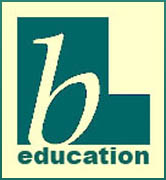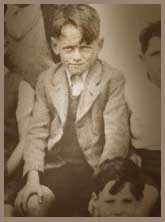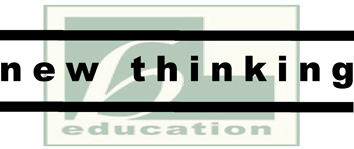|
movies
Bill
under interrogation...
concerning his involvements with career-management theory, careers-worker expertise, the use and abuse of narrative, what we should be doing about curriculum, & why he's pushing
critical thinking
Bill
on theory...
about careers work as matching & expanding, innovating & deepening, reviewing & reforming
Julia Yates
looking for meaning in career learning
________________
Tony Watts - the DOTS model
Rachel Mulvey - employability
Anne Chant - career learning
Emmy Anon - enterprise
Tristram Hooley - online career learning
Tristram Hooley - social media
Tony Watts - career-development theory
|
resources,
articles & monographs
ten
propositions in search of careers-work professionalism
monograph - pdf: fully-referenced defence of careers-work
professions - the personal commitment and the organisational frameworks
which support it - explaining disappointment with twentieth-century progress
- offering a basis for an independent new start - enlarged thinking for
negotiating funding, for research-&-development & for gaining
the interested attention of clients-&-students - & of partners-&-stakeholders
- no more postponements of recurrent fear - a new basis for sustainable
hope - supports day-long participative workshop - key features, use in
guidance & curriculum, & programme possibilities - new section
on enabling questioning of narratives & on learning outcomes - designed
to build a community of careers-work practice
careers
work - distinct or extinct?
monograph - pdf: details how public-sector careers work
will thrive alongside private-sector career-coaching - doing what only
it can do, & not re-hashing C20th answers to C21st questions - we
need a new start, from scratch - with stakeholders and clients the narrative
is for navigating a changing, disputed and confusing journey - from careers
workers the thinking is broader on psychology, more critical on economics,
wider on social forces, sharper on ethics & closer to both curriculum
and community - credibly defending careers work, re-imagining it, and
evaluating it - organisations like the UK's Career Development Institute
cannot escape the challenge -
& you
should have your say
change,
politics & education
monograph - pdf: takes a hard-headed look at how neighbourhood,
culture, education and policy feature in how people manage work-life -
it starts a new conversation, reflecting stakeholder rather than shareholder
interests - it considers who shall be heard and who must be heeded - it
re-defines the big society as civil society, acting independently of both
political positioning & commercial lobbying - it asks what must happen
if careers work is to be a useful public service - & that means building
partnerships between educator-expertise & community-experience - it
also means questioning dependence on doubtful psychology & economics
- & it means making good the claims of social sciences & narrative
thinking - it calls on the few educators who are ready for this, rather
than the conscripted many who are not - the evidence-based argument is
that the sheer complexity & unpredictability of navigating citizenship's
and work-life's journeys makes a root-and-branch curriculum development
urgent, even more so than trying to rescue what's left of face-to-face
careers work - it confronts the evidence that neighbourhood, culture,
education & policy are changing, even if some careers-work leaders
appear not to have noticed
career
management:
place, space and social enclaves
journal article - pdf: explains how geography influences
life chances - so that winning-respect, self confidence & freedom
play out differently in different locations - each becoming a social enclave
with its own experience, culture & voice - & its own way of realising,
or not realising, a stake in society - but nothing is fixed, all can be
opened to the unforeseen - & that means working with what we once
called social class as though each social enclave were a distinct system
- the article sets out what this means for career-development expertise
working with career-management experience
on-line
careers work - hit & myth
article - pdf: examines internet hits which are what
on-line careers work does well - & myths which mislead and damage
life chances - shows how careers workers are well placed to enable students
to deal with this - (1) grasp enables critical on-line thinking - (2)
reach enables transfer of on-line learning to off-line life - & (3)
embodiment embeds virtual learning in real-life identity - all show why
all of this requires direct-and-personal contact
digital
literacy - repositioning on-line careers work
monograph - pdf: teachers are not best placed to enable
people in the manipulation & configuration of on-line devices - we
need another concept of digital literacy - one that calls on what educators
do best - & not least when helping with career management - the monograph
dismantles the imagery of digital natives & visitors - it speaks instead
of colonists, neighbours & predators - & it argues for the critical
scrutiny of the relationship between on-line virtuality & off-line
reality - that means that digital literacy is not an on-line facility
with devices, it is an off-line capacity for probing what the devices
find - & that positions educators as enabling awkward questioning
- how can an on-line self represent an embodied identity? - what links
on-line connections to wider realities? - how does anybody know when on-line
searching finds reliable learning? - we need this kind of critical-thinking
narrative for realising the full potential of the net
enclaves,
systems and voice
monograph - pdf & presentation: part of the MMU's
project on Place, Space & Social Justice In Education - shows how
geography impacts life chances - & sets out how any place can become
a bigger space - explains why it recognises enclaves rather than just
localities - & how that serves social justice - it means working with
usefulness rather than effectiveness - with exploration more than competition
- with reliable process more than impartial content - & with the voicing
of experience more than the engagement of expertise - the outcomes are
best expressed as narrative rather than diagnosis - and both guidance
and careers education need to make more space for all this - or lose the
plot
three-scene
storyboarding - learning for living
monograph - pdf: storyboarding is an interactive format-and-process
for seeking meaning in experience and purpose in action - it offers a
basis for life-wide & life-long relevance for learning programmes
in all sectors - it has had a long and varied development, but all its
features are collected in this handbook - it explains the method, illustrates
the process, examines issues, sets out the theory, probes the philosophy,
references the research, identifies the outcomes & suggests implications
for policy - in a contents-list of almost forty 'nutshells' - all easily-searched
- and all readily-linked - the underlying question is live and learn or
live and don't learn, which is best? - there is more than one way to find
out in this handbook
philosophies
for careers work
article - pdf (needs printing): interactive examination
of philosophies of careers work - in crisis we need to be clear about
such, often unspoken, assumptions - use this to develop your position
on a spectrum of orientations, from post-modern to pragmatic - all are
invested, day-by-day, in the ideas & materials we develop - it's time
to probe what we claim - to understand why we are contested - to enlarge
our professionalism - to know what directions we conscientiously can take
- and must now avoid - ...and, also, to give a person a reason to get
out of bed in the morning
examples
of three-scene storyboarding - narratives of learning-for-living
handbook - pdf: storyboarding engages career workers
& student-or-clients in talking & listening to each other - this
is a quick start to that technique - illustrated by twelve worked examples,
each setting a filmic narrative alongside its expert case study - key
design features help expertise converse with experience - graphics add
to the depth of storytelling - layout shows competitive positioning and
exploratory discovery - narrative imagination gives control of one's own
story - enabling personal well-being while also enlarging careers-work
professionalism - the handbook links to other sources on all these issues
_________
|
blogs
no
exit
few public services
are more used to shifting politics than careers work - but few shifts
are as radical as leaving the EU - there are no clear signposts to the
agile but muddled refocusing of priorities - issues range from LGBT rights
to the neglected expertise of young people - the citizenry needs uncovered
the hidden back-stories of vested interests - & to be able to make
good use of whatever bad news it finds - conventional careers work can't
be expected to deal with this - it needs the reach & grasp of mainstream
curriculum
what
future for Europe?
there's no shortage of talk - much of it pantomime, smokescreen &
deception - the outcome will most affect our children, grandchildren &
great-grandchildren - it's a narrative, where what they find then will
provoke the questions they ask about now - so how will careers work professionalism
feature in that talk?
education
& welfare
they are entwined - at times raising life-&-death issues for the poor,
who are too often stigmatised as scroungers by the comfortable - neo-liberal
austerity is sharpening these conflicts of interest - a twenty-first century
professionalism must call on an inclusive civil society, strengthening
working & civil rights - while enabling independent minds, critical
thinking & creativity
careers-work
leadership - a trio on trial
there's a lot to disagree about in education - with conflicting priorities
& many ways of dealing with them - so the call from a prominent trio
is for more leaders - each claiming to know how to find them - but do
leaders know better than followers about what's going on & what to
do about it - & anyway how do followers figure the facts, the opinions
& the bases for action? - there's evidence on this, but it won't take
the trio to where they want to go - even if they can agree about it -
It finds reliable bases for action - especially in learning from mistakes
new
deals for careers work
is careers work running out of road? - technologies,
politics & cultures are re-routing the ways people live - so where
is careers work to go? - the temptation is to revisit past achievements,
but it's a blind alley - careers work is at its best when it re-aligns
expert action to changing experience - & that new deal depends on
local talking-and-listening conversations between educators, their stakeholders
with their students & clients
holding
on and letting go
probing
whether embedding skills for employability actually hinders the creativity
of ready-for-anything flexibility - the issue is convention or reform
- which leads up twentieth-century blind alleys and which finds twenty-first-century
ways forward?
why
fail?
things go wrong, so we learn how to fix them - that's the story in education
for citizenship, for working life & for politics - but why would people
then embrace a myth & reject the reality? - especially when they are dealing
with movements that ignore their experience, disdain their needs and deny
their interests? - is it a failure of education? - can people learn to
make good use of bad news? - & to re-write the narrative?
a
glimpse of the future
setting out a polemic for careers work - compelling stuff intended to
galvanise change - the early-days issues for unemployment, local government
& work creation - provoking contemporary issues: is careers work an
institution to defend or a movement for reform? - whose interests does
it serve & what must it oppose? - why is there so little agreement
about this? - it tracks the twentieth-century failure which brought about
the twenty-first-century careers-work mess - for the now-and-future, will
the last careers-work leader standing be empty handed? - or point to where
careers work enables the independent minds, critical thinking & creative
invention that makes for ready-for-anything flexibility?
objecting
bodies
feminism raises issues on who-gets-to-do-what in society - these are careers-work
issues - & this is a wave-by-wave account of feminism's progress -
fully-referenced & linked, the account ranges from Suffragette
respectability to Pussy-Riot shock - it probes how progress has
worked differently for the rich & the poor - it documents the influences
of the press, tv, the internet and Hollywood - condescending patriarchy,
masculine backlash & political manipulation live there, and objecting
bodies does not spare them - the account is peppered with engaging quotations
which enable students & their educators to work together on what feminism
can now do for objecting bodies
making
the most of life's design
life design is a useful programme enabling people
to become agents of career success in an increasingly career-challenging
world - it's a vigorous project, based in America - the process engages
psychological constructs to catalyse career development - it's good stuff,
& with some European help it can be better - mainly by working on
how career-management autonomy can expand this career-development programme
- an expanded life design will then engage students and educators in new
and more inclusive ways of finding out what's going on - & firing
up a more complete apparatus for dealing with it
careers
workers as agents of history
independence of mind, critical thinking and discontented creativity -
how they are acknowledged, welcomed and learned from - when the discomfort
of failure helps - and why regressive tendencies need to be met with progressive
wake-ups - was there ever a time when all this were more needed?
figuring
out the future for the careers profession
by
establishing the facts, illustrating the thinking, the factors & the
trends - & reflecting on what each means in students' and clients'
lives - & only then setting out future possibilities
reforming
careers-work partnerships
because its professions are facing make-or-break issues - & its clients
& students are navigating unprecedented levels of change & complexity
- this is a necessary scrutinising of the claims that careers work makes,
the roles it has developed, the cultures it inhabits & the thinking
it holds to - it points to untapped resources and links for enabling students
& clients to claim their citizenship, manage their working lives &
find fulfillment
catching
up with career management - whose voices are heeded? what interests are
served? & who can afford hope?
work-life
needs a distinction between career development & career management
- the former is what careers workers do to help - the latter what students
& clients make of it - the two do not exactly correspond - & in
a changing world we should worry when they do - educators & careers
workers & their leaders need to catch up with the sense that clients
& students make of learning & work - there is no single answer
to the questions raised here - & none is simple - but any answer must
take account of the politics of whose voices are heeded & what interests
are served & who can afford hope
renewing
the politics of education - how nations failed education - how cities
liberate it - & how shock will set the agenda
probing what politicians do... & examining how educators find a better
politics - probing whether people are fair to politicians ... & examining
how educators scan their narratives for authentic voices - probing how
to test for authenticity ...& examining how raising aspirations is a demanding
test - probing the complexity for political focus ... & examining curriculum
as community property - probing policy stories for their meaning ... &
examining how educators' develop liberating backstories - probing why
educators seize on shocks ... & examining how that connects to students
in imagining new possibilities - probing what cities have that education
needs ... & examining how student work with educators on making sense
of experience
students
- their educators - & the business-world - which way is forward?
probing whether there is an attempt at curriculum capture - no educator
can afford to ignore that - exposing the doubts, the conflicts, and the
role of a careers-work think-tank - showing how wider social-world perspectives
find stronger bases for student-educator-employer partnerships - there
are no heroes or villains here, just causes worth identifying and effects
to be dealt with - explaining how genuine partnerships work best not on
'how-to-do!' prescriptions but on 'what-went-wrong?' diagnoses
what
can politics do for education?
covering
the bases on how politics & education interact, and don't - with part
two leading to an interrogation of 'politicians', 'policy makers' &
'performers' - & a probing of the emerging case for educators to ignore
state governments & find new friends
why
the poor don't listen to us
who's
that kid in the café?
identity & role in careers work
careers-work
creativity - the fizz and the burn?
_________
...'as
far as your imagination &
commitment will take you...'
|







